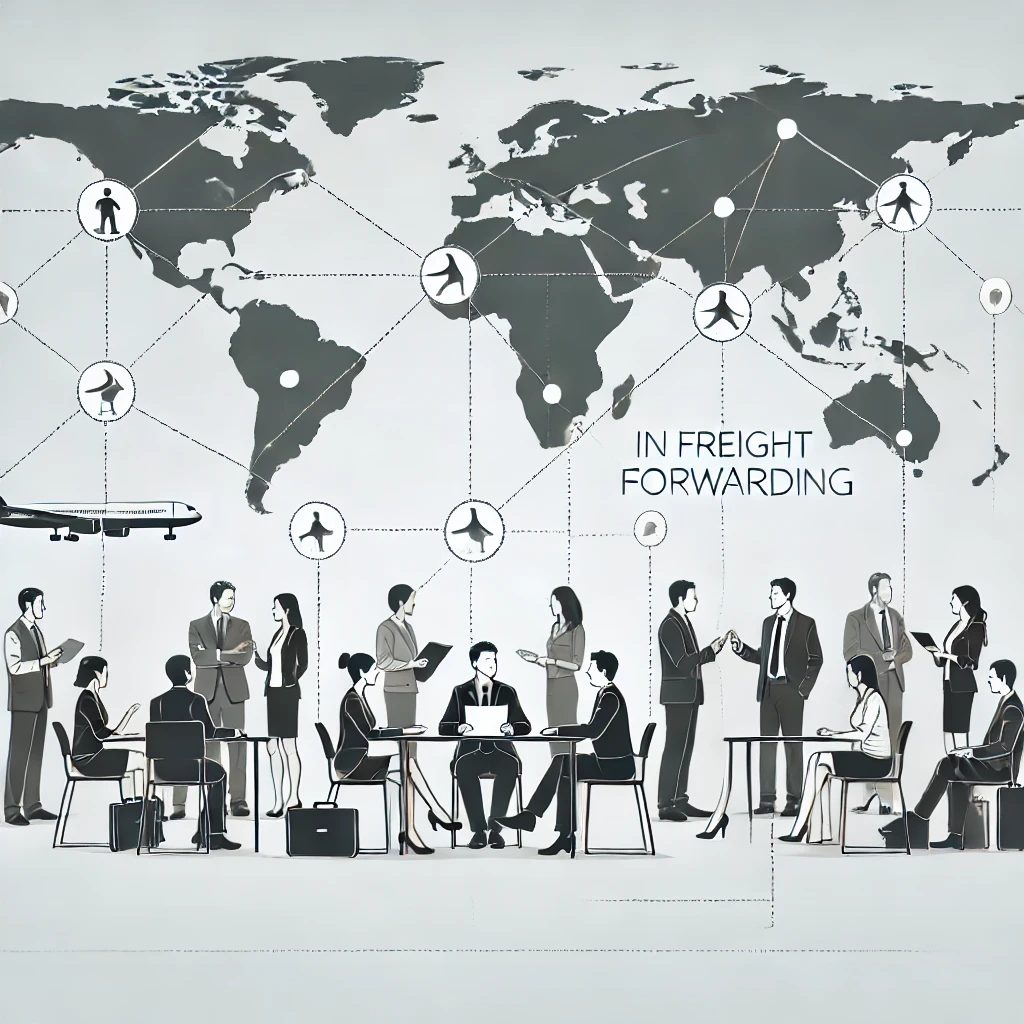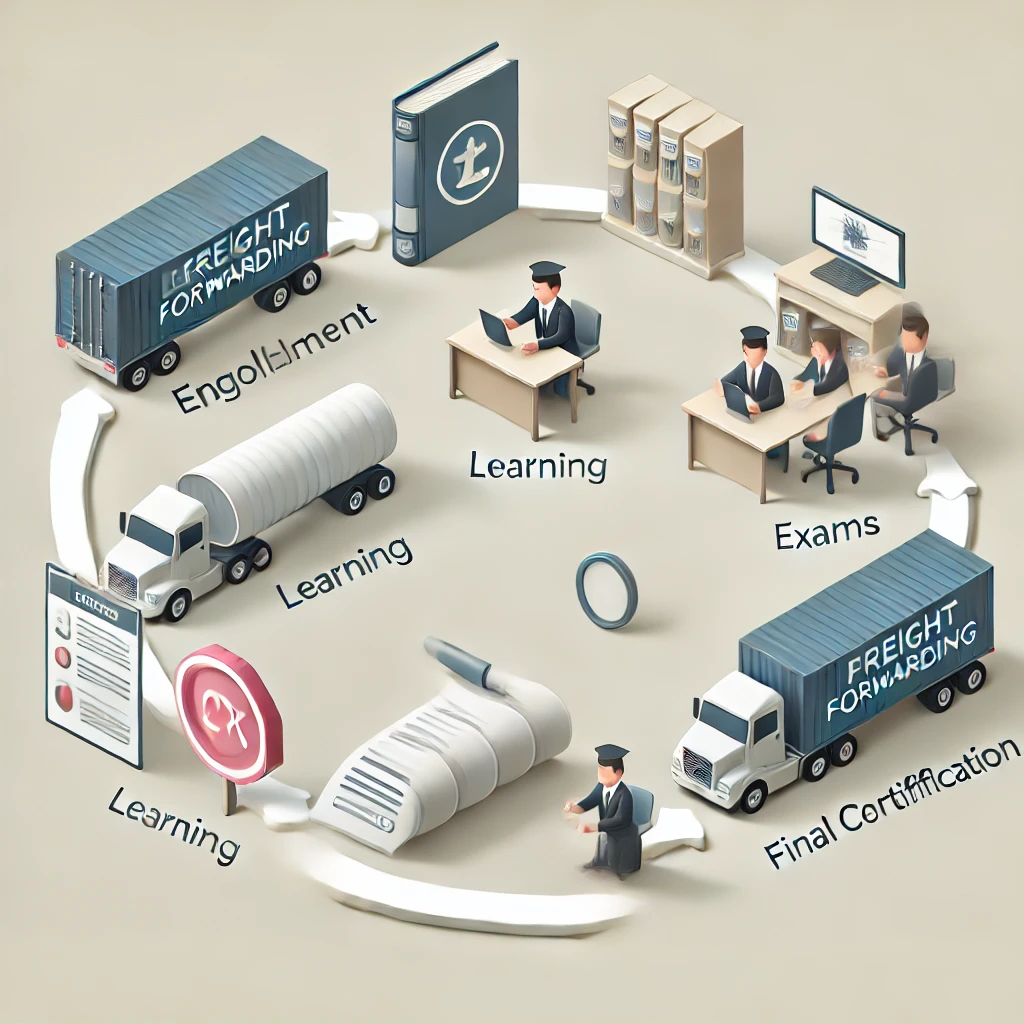Freight Forwarding Courses: Your Gateway to a Career in Global Logistics

What is Freight Forwarding?
Before diving into the courses, it’s essential to understand what freight forwarding entails:
Freight forwarding is the coordination and shipment of goods from one place to another through single or multiple carriers via air, marine, rail or highway. A freight forwarder acts as an intermediary between the shipper and transportation services, offering a range of supply chain solutions.
Why Take Freight Forwarding Courses?
Freight forwarding courses offer numerous benefits:
- Gain in-depth industry knowledge
- Enhance your career prospects
- Stay updated with the latest trends and technologies
- Network with industry professionals
- Prepare for certifications and licenses
Types of Freight Forwarding Courses
Various institutions offer freight forwarding courses, including:
- Vocational schools
- Community colleges
- Universities
- Professional associations (e.g., CIFFA – Canadian International Freight Forwarders Association)
- Online learning platforms
Courses range from short certificate programs to full degree courses in logistics and supply chain management.
What You'll Learn in Freight Forwarding Courses
Freight forwarding courses cover a wide range of topics crucial to the industry. Here’s a breakdown of what you can expect to learn:
1. Introduction to Freight Forwarding
- History and evolution of freight forwarding
- Role of freight forwarders in international trade
- Overview of the global supply chain
2. Types of Transportation
- Air freight
- Sea freight
- Rail freight
- Road freight
- Multimodal transportation
3. International Trade Regulations
- Incoterms (International Commercial Terms)
- Customs regulations and procedures
- Import/export documentation
- Trade agreements and their impact on shipping
4. Logistics Management
- Warehouse management
- Inventory control
- Distribution strategies
- Last-mile delivery
5. Customs Brokerage
- Customs clearance procedures
- Tariff classification
- Duty and tax calculations
- Customs valuation
6. Cargo Insurance
- Types of cargo insurance
- Risk assessment
- Claims procedures
7. Dangerous Goods Handling
- Classification of dangerous goods
- Packaging and labeling requirements
- Documentation for hazardous materials
8. Technology in Freight Forwarding
- Transportation Management Systems (TMS)
- Electronic Data Interchange (EDI)
- Blockchain in logistics
- Artificial Intelligence and Machine Learning applications
9. Financial Aspects of Freight Forwarding
- Pricing strategies
- Cost calculation
- Profit margin analysis
- Invoicing and payment terms
10. Customer Service in Freight Forwarding
- Communication skills
- Problem-solving techniques
- Managing customer expectations
- Handling disputes and claims
11. Legal Aspects of Freight Forwarding
- Contracts and liabilities
- International trade laws
- Dispute resolution
12. Environmental Considerations
- Sustainable logistics practices
- Carbon footprint reduction strategies
- Green transportation options
13. Project Cargo and Specialized Freight
- Oversized and heavy-lift cargo
- Temperature-controlled shipments
- Live animal transportation
14. Industry-Specific Software Training
- Freight management software
- Customs declaration systems
- Track and trace technologies
Practical Components
Many freight forwarding courses include practical elements to reinforce theoretical knowledge:
- Case Studies: Analyze real-world freight forwarding scenarios
- Simulations: Use software to simulate freight forwarding operations
- Internships: Gain hands-on experience with freight forwarding companies
- Field Trips: Visit ports, warehouses, and logistics centers
- Guest Lectures: Learn from experienced industry professionals
Certifications and Career Advancement
Freight forwarding courses often prepare students for industry certifications, such as:
- Certified International Freight Forwarder (CIFF)
- IATA/FIATA Diploma in Freight Forwarding
- Certified Customs Specialist (CCS)
These certifications can significantly enhance career prospects and earning potential in the freight forwarding industry.
Career Opportunities After Completing Freight Forwarding Courses
Graduates of freight forwarding courses can pursue various career paths:
- Freight Forwarder
- Logistics Coordinator
- Import/Export Specialist
- Customs Broker
- Supply Chain Analyst
- Warehouse Manager
- Transportation Planner
- Cargo Insurance Specialist

The Future of Freight Forwarding: What Courses Are Covering
As the industry evolves, freight forwarding courses are adapting to cover emerging trends:
- Digitalization: The impact of digital technologies on freight forwarding processes
- E-commerce Logistics: Strategies for handling the boom in online retail
- Sustainability: Green logistics and reducing carbon footprints
- Cybersecurity: Protecting sensitive shipping data and transactions
- Data Analytics: Using big data to optimize freight operations
How to Choose the Right Freight Forwarding Course
When selecting a consider:
- Accreditation of the institution
- Course content and its relevance to your career goals
- Duration and flexibility of the program
- Practical components and industry connections
- Cost and potential return on investment
Preparing for a Freight Forwarding Course
To make the most of your freight forwarding course:
- Brush up on basic geography and international trade concepts
- Stay informed about global economic news
- Familiarize yourself with common shipping terms
- Develop your computer skills, especially in spreadsheet software
- Work on your communication and problem-solving skills

Conclusion: Embarking on Your Freight Forwarding Journey
Freight forwarding courses offer a comprehensive introduction to the world of global logistics. By providing in-depth knowledge of international trade processes, transportation methods, customs procedures, and industry regulations, these equip you with the skills needed to succeed in this dynamic field.
Whether you’re looking to start a career in freight forwarding, enhance your existing skills, or move into a management role in logistics, freight forwarding courses provide the knowledge and credentials to help you achieve your goals.
As the global economy continues to grow and evolve, the importance of efficient and effective freight forwarding will only increase. By investing in your education through, you’re positioning yourself at the forefront of this crucial industry, ready to tackle the challenges and opportunities of global trade.
Remember, the journey to becoming a successful freight forwarding professional doesn’t end with completing a. Continuous learning, staying updated with industry trends, and gaining practical experience are key to thriving in this fast-paced field. With the foundation provided by comprehensive, you’ll be well-equipped to build a rewarding career in the exciting world of international logistics.
